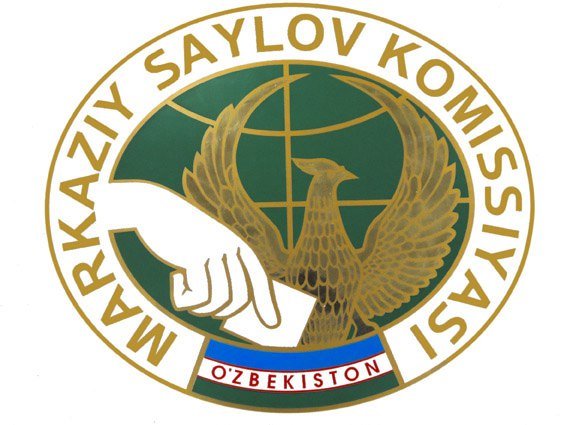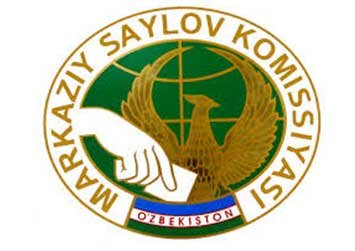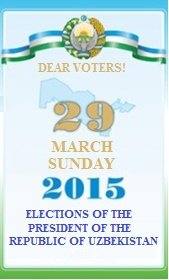An international roundtable discussion in Tashkent has addressed the topic “Political parties and elections: international practice and the experience of Uzbekistan.”
The event was organized by the Independent Institute for Monitoring the Formation of Civil Society and the Central Election Commission of the Republic of Uzbekistan, and was attended by specialists of the sphere from Uzbekistan, United States, Germany, South Korea, France, as well as experts from a number of international organizations, including OSCE, UNESCO, the National Democratic Institute (USA), the Friedrich Ebert Foundation (Germany), along with deputies of the Legislative Chamber of Uzbekistan’s Oliy Majlis, members of the Central Election Commission, representatives of research and education institutions, political parties, public organizations and mass media.
Participants of the panel discussion stated that wide-ranging reforms have been in progress under the leadership of President Islam Karimov across all walks of life, including the electoral system. Publicity is being ensured in the work of electoral commissions during the preparations for and conduct of elections.
In accordance with the Funding Political Parties Act, a political party is entitled for government resources to fund its authorized activities in the case it has received a necessary quantity of deputy seats as a result of elections to the Legislative Chamber of the Oliy Majlis to form a fraction (parliamentary group) of a political party in the lower house. In line with laws on Elections to the Oliy Majlis of the Republic of Uzbekistan and the Elections to Regional, District and Municipal Kengashes of People’s Deputies, political parties have a right to nominate one observer each to take part in all events within the preparations for and conduct of elections as well as in the rooms for voting on the day of elections and during ballot count.
These documents have consolidated the multiparty system of the country and created a foundation for the enhancement of participation of political parties in the work of the parliament and other representative bodies of local government, and in making decisions important for the development of the country. Currently, fractions of four political parties as well as a parliamentary group from the Ecological Movement of Uzbekistan are working in the national parliament.
The forthcoming elections in Uzbekistan are to be held in novel conditions and environment created in accordance with the principles of advanced democratic country and civil society. Thorough preparations have been undertaken in the nation to this important process.
The Concept of Intensification of Democratic Reforms and Formation of Civil Society in the Country outlined by the head of our state serves as a beginning of a new stage in the perfection of nation building, legal-normative system and electoral legislation. Triggered by the Concept, the amendments introduced to the electoral law facilitate the further improvement of mechanisms in the liberalization of electoral processes, in securing their openness, and the free and independent expression of will of citizens.
The adoption of the Law of the Republic of Uzbekistan on the Introduction of Amendments and Addenda to the Laws of the Republic of Uzbekistan on Elections to the Oliy Majlis of the Republic of Uzbekistan and Elections to Regional, District and Municipal Kengashes of People’s Deputies to Further Provide for a Freedom of Choice and the Evolution of the Electoral Legislation, has bolstered the effectiveness of mechanisms in providing the candidates for deputies and political parties with equal conditions and opportunities for the election campaign. The legislative fixation of norms of free expression of will by citizens, of securing the openness of the activities of electoral commissions, of thwarting violations of the electoral law has cemented the guarantees of electoral rights to a greater extent.
During the roundtable discussion, international experts drew a special attention to the fact that the guarantees of citizen electoral rights envisaged in the national electoral legislation of Uzbekistan comply completely with the universal provisions of international law. The actions dedicated to refine the electoral system in line with the Concept received a high acknowledgement. It was stressed also that the conduct of elections on the basis of multiparty system allows for the elevation of socio-political activity of citizens and their role in public and state administration.
As Erica Breth, director of America’s National Democratic Institute office in Uzbekistan, has suggested, democracy is unimaginable without political parties. In her opinion, the availability of a multiparty system implies the pluralism of views. That is one of the most critical and principal conditions of democracy. Uzbekistan has made considerable achievements for a brief span of time in the development of a multiparty system. All the reforms are spearheaded with an eye to the peculiarities of the national socio-political evolution and international law standards, building on the rich historical and cultural heritage, values and traditions of the people of Uzbekistan.
It was underscored at the panel discussion that as a result of the emphasis placed in the country to the development and consolidation of the multiparty system, the role and effectiveness of political parties has been enhancing in addressing critical issues of national importance. It was noted that political parties, building on Uzbekistan’s legislative base, are becoming an effective force in the process of cardinal reforms in the society.
According to Emmanuel Dupuy, President of the Institute for Prospective and Security in Europe, noteworthy is the uplifted role of women in the activities of political parties of Uzbekistan with the purpose of expanding their participation in nation building. Securing a 30-percent quota for women in Uzbekistan for the nomination of deputies from political parties facilitates growth in their socio-political activity.
Participants of the panel discussion exchanged views on issues related to the development of competition among political parties and the provision for their active participation in the life of the society. They also got familiar with systemic reforms carried out in Uzbekistan to further refine the electoral legislation and expand the involvement of political parties in the electoral process. The forum contributors were introduced also to the extent of employment of information-communication technologies in the election campaign and the expertise of civil society institutions in the preparations for and conduct of elections.
The occasion served as a platform to inquire into the experience of participation by Uzbekistan’s political parties in elections to representative bodies of local government. Studies carried out by the Independent Institute for Monitoring the Formation of Civil Society suggested that inter-party competition has been mounting throughout all the phases of elections.
Professor Jun Young Choi of the department of political science and international relations at the Inha University of the Republic of Korea said crucial in the activities of political parties of Uzbekistan is that each one of them has been expanding with a growing number of members and supporters and thus actively engaging in the activities of representative bodies of government.
Forum participants discussed the reports on the peculiarities of activities of Uzbekistan’s political parties, their place and role in the democratization and modernization of society, on the universally recognized principles and norms pertinent to the participation of political parties in elections to legislatures, on the expertise of advanced democratic nations on this front, and the efforts underway toward the creation of equal opportunities in elections for political parties.
























